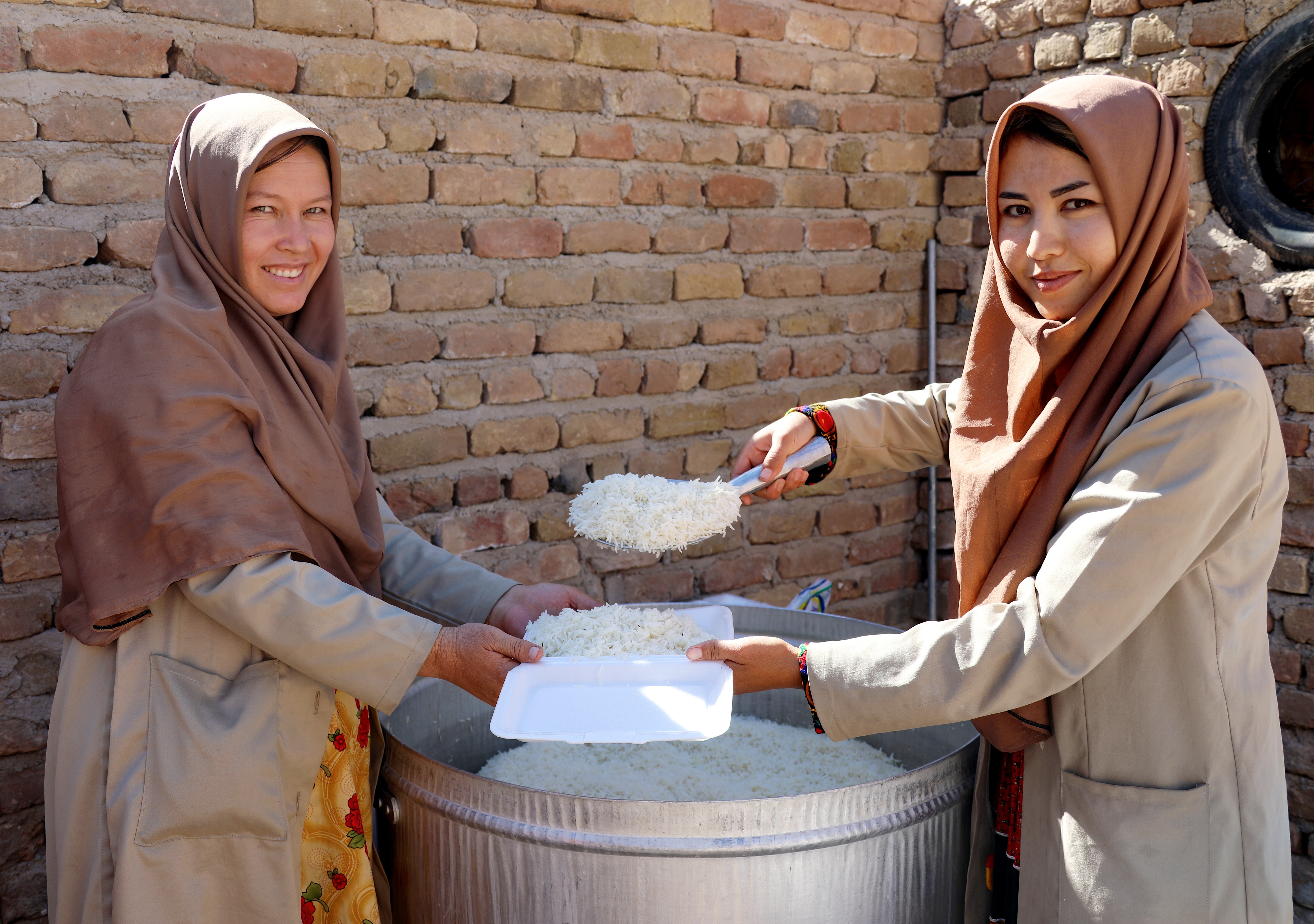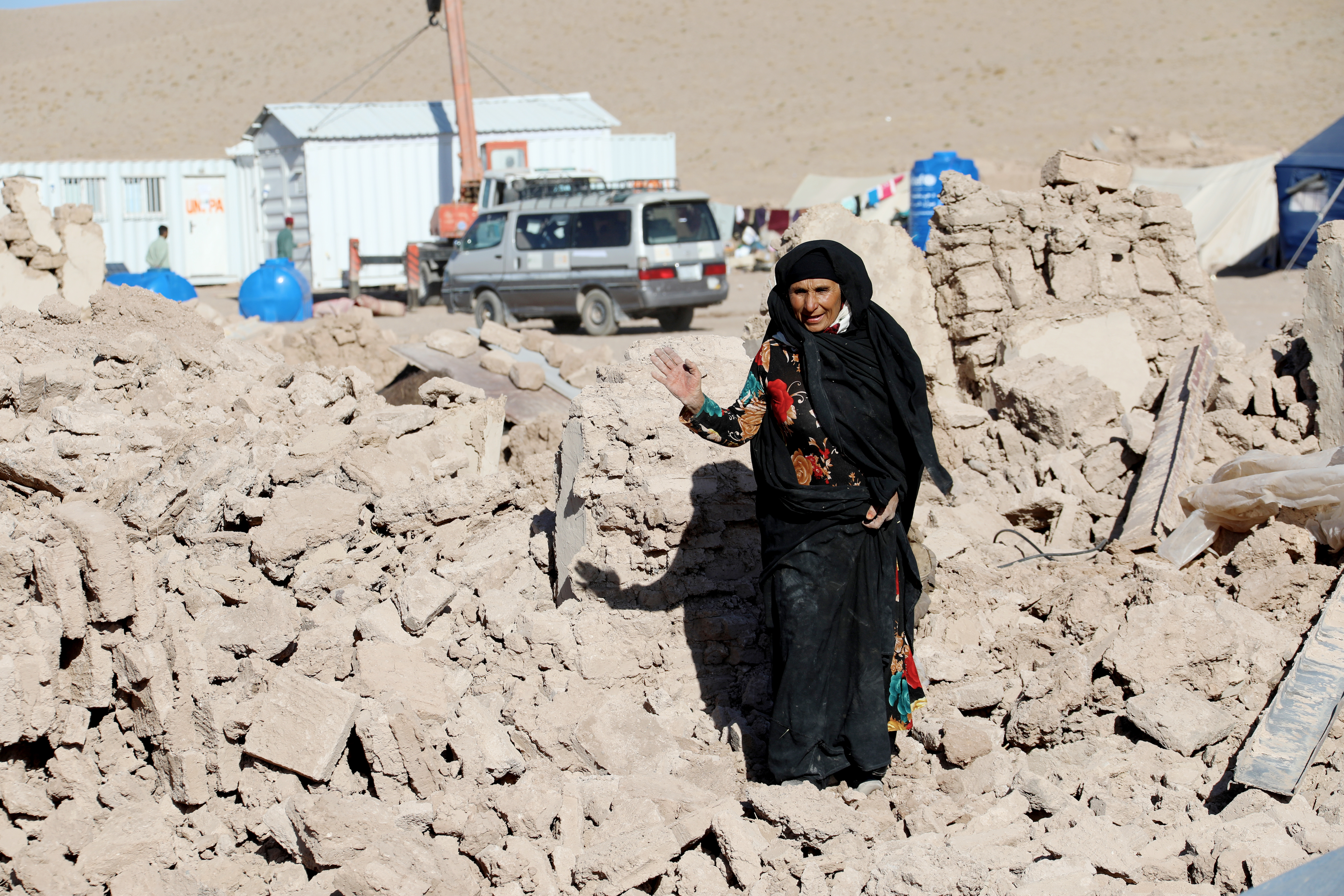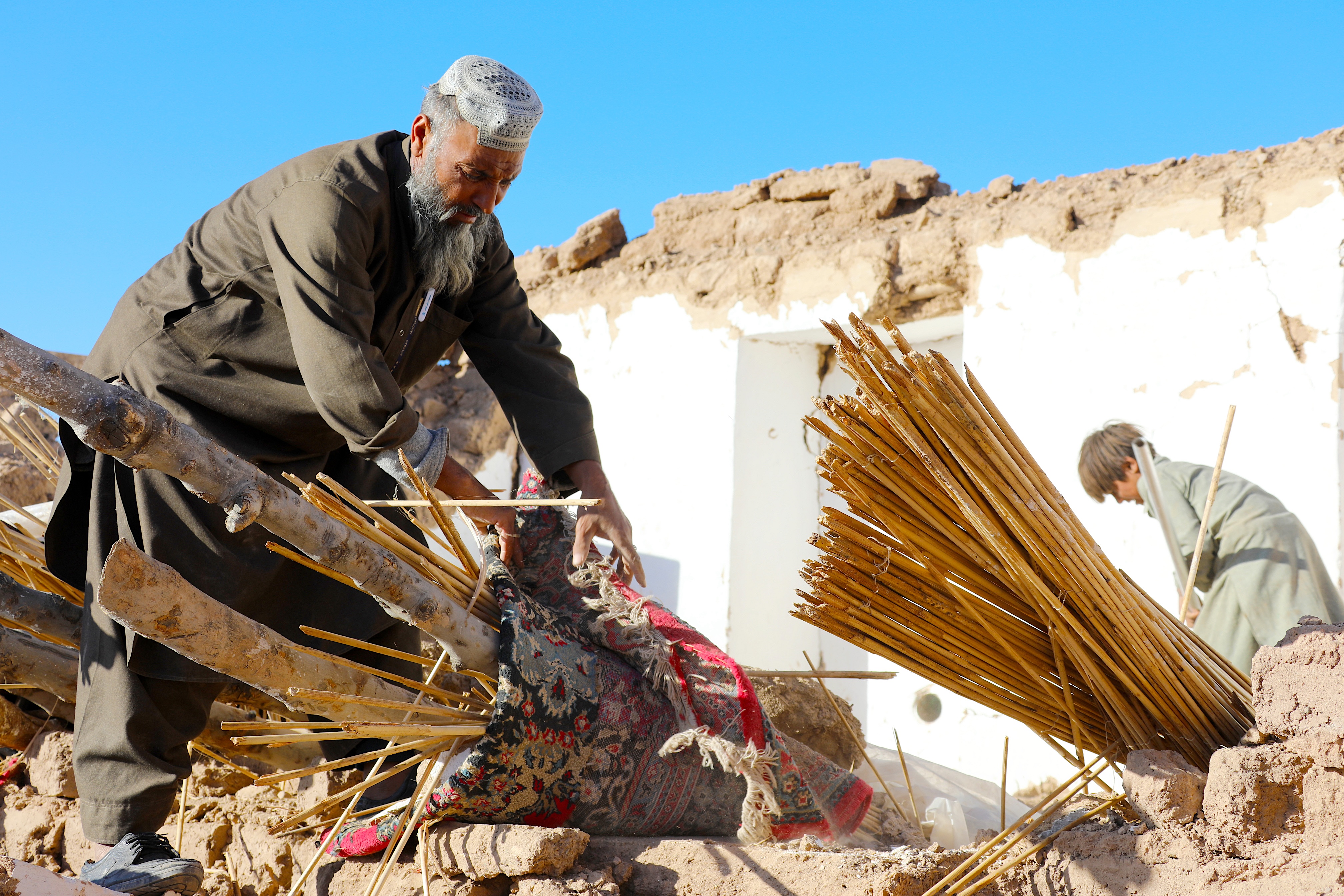A community kitchen in Afghanistan that serves more than food
Feeding hope
November 28, 2023

Tamana Akbari (right), a community kitchen worker distributes food to the people affected by the earthquake in Herat.
It was a normal day in Gharmoshak village of Zinda Jan district in Herat province, when the earth suddenly shook with force. Guldasta was cooking in their mud house, while Mohammad Sadiq was working in his field. They both felt the ground tremble and heard a loud rumble. Guldasta ran out of their house, just in time to see it collapse into a pile of rubble.
They were not the only ones who lost everything. The earthquake, measuring 6.3 in magnitude, left a trail of destruction impacting 2.2 million people. More than 1,400 have died, 11,000 were injured, and there is widespread damage to homes and infrastructure. The survivors, mostly women and children, were left hungry, homeless, and in need of help.
Guldasta stands amidst the debris of her demolished home, hoping to salvage some belongings from beneath the rubble. Unfortunately, all that remains of her family's necessities, including 20 kilograms of flour, two bags of wheat, and other essentials, have been destroyed. Their animals' feed is also lost.
She carries the burden of supporting her four children and 13 grandchildren by herself, as her husband is too old to work and her son is overseas, where he labours endlessly to provide for their basic needs.

Guldasta looks upon the destruction to her home after the earthquake.
Mohammad Sadiq, another resident of Gharmoshak village is sheltering with his family in a dark windowless container near the rubble of their old home. He and his wife had built that home with love and hope, but now it lies in ruins. Tears fill his eyes as he looks at the collapsed remains of their dreams. The disaster that destroyed their home also caused severe injuries to his wife.
“All the food that we had stored for the winter was destroyed due to the earthquake,” he said. “We are left with nothing, no home, and no food in this deserted village.”
Immediate assessments by the UN indicate the urgent need for food, medicine, and shelter in Herat. The community is in dire need of support to rebuild their lives.
However, Guldasta and Sadiq may have lost their homes, belongings, and their loved ones, but they also found a lifeline in a community kitchen that provides hot meals.

Mohammad Sadiq, resident of Gharmoshak village, attempts to collect what he can after his family's home was destroyed by the earthquake.
"We're not alone, someone cares about us."
Amid the catastrophe and despair, UNDP through its partner Care Afghanistan, enabled their existing 15 women-led community kitchens to cook and serve hot and nutritious meals for thousands of people. The community kitchens in Herat started distributing food on 7 September and extended their services on 8 October to support families affected by the earthquake. With 147 women cooking and three men assisting in distribution, they now provide over 2,200 free meals daily to the communities in need. Since they began, they've delivered about 153,000 hot meals to the people who are facing food insecurity including 13,000 to families affected by the earthquake.
“When they give us hot meals, even if only for a moment, it's like a weight lifted off our shoulders. We have a thousand worries, but for that short time, we can forget about most of them. It might not seem like much, but in our tough lives, it means the world. It shows us that we're not alone, someone cares about us,” said Sadiq.
Beyond providing meals, the community kitchens also promote social cohesion and empower the women and young people, who are preparing and distributing the meals.
One of the women who works in the kitchen is Tamana Akbari. She is a single mother, who had no source of income. She felt hopeless and depressed, but when she heard about the community kitchen, she decided to join. Today, not only does she learn new skills but also earns a small salary. She has also made new friends and gained confidence. "I am now the sole breadwinner for my family. I have gained economic independence and I no longer feel stressed about staying at home," she said.
The community kitchen not only provides meals, but is also a source of empowerment and resilience. The initiative which is funded by the Government of Japan and launched by the UNDP Afghanistan under its ABADEI programme, has proven to be a lifeline for many. With 47 community kitchens established across five provinces, where women and men work together to prepare meals, they have exceeded expectations by feeding 86,870 people. The local communities, elders, and authorities have embraced this initiative; inspiring many women to initiate similar projects.
The recent earthquakes in Herat have not only exposed the immediate need for aid but also highlighted the longstanding challenges faced by Afghanistan—four decades of conflict, high poverty rates, and an ongoing humanitarian crisis. Learn more about UNDP’s response and appeal.

 Locations
Locations



